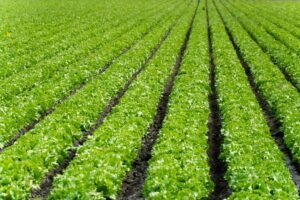Farm vehicles are the backbone of modern agriculture, helping farmers transport crops, livestock, and equipment efficiently across their properties and to local markets. From tractors and utility trucks to harvesters and ATVs, these vehicles are essential assets that keep operations running smoothly. However, because they are constantly in use — often on rough terrain and public roads — they face unique risks. That’s why understanding the right insurance coverage for farm vehicles in California is crucial for protecting your business from unexpected financial losses.
Why Farm Vehicle Insurance Matters
California farmers operate in a demanding environment where time and resources are valuable. A single vehicle accident, theft, or mechanical failure can disrupt your schedule and lead to expensive repairs or liability claims. Farm vehicle insurance offers comprehensive protection against these potential setbacks. It covers damages to vehicles, liability for injuries or property damage, and other losses resulting from accidents or natural disasters. Without adequate coverage, even a minor mishap can lead to major expenses and downtime.
Types of Farm Vehicles That Need Coverage
Farm vehicle insurance applies to a wide range of agricultural machinery and transport vehicles. This includes tractors, combines, plows, irrigation trucks, grain haulers, and even pickup trucks used for both personal and business purposes. Many farmers also rely on ATVs and utility vehicles for daily fieldwork, which should be included in the policy to ensure complete protection. Whether your vehicle operates exclusively on your property or travels on public roads, having it insured provides peace of mind and legal compliance.
Key Coverage Options for Farm Vehicles
A farm vehicle insurance policy typically includes several types of protection designed to address different risks:
Liability Coverage: This is the foundation of any policy, covering bodily injury or property damage you might cause while operating your farm vehicle.
Collision Coverage: Pays for damage to your vehicle in case of an accident, regardless of who is at fault.
Comprehensive Coverage: Protects against non-collision incidents like theft, vandalism, fire, or damage from falling objects.
Uninsured/Underinsured Motorist Coverage: Ensures you’re protected if you’re involved in an accident with a driver who doesn’t have adequate insurance.
Medical Payments Coverage: Covers medical expenses for you or passengers injured in an accident involving a farm vehicle.
Each policy can be customized based on your specific needs and the types of vehicles in your fleet. A good insurance provider will help tailor your coverage to fit your operational requirements and budget.
Legal Requirements for Farm Vehicles in California
California law requires all vehicles driven on public roads to have minimum liability coverage. However, vehicles used exclusively on private farmland may not be subject to the same requirements. Still, insuring all farm vehicles — even those that stay within your property — is a smart business decision. Accidents can occur anywhere, and damages or injuries that happen on private land can still lead to costly lawsuits or repair bills. Ensuring compliance with state laws and protecting your assets are both essential aspects of responsible farm management.
Managing Risks and Reducing Premium Costs
While insurance is an investment, there are several ways to keep your premiums affordable without sacrificing protection. Keeping vehicles well-maintained, hiring trained operators, and implementing safety protocols can significantly reduce your risk of claims. Installing GPS trackers and security systems can also deter theft and qualify you for potential policy discounts. Regularly reviewing your coverage ensures you’re not over- or under-insured as your farm grows and equipment needs evolve.
Choosing the Right Farm Vehicle Insurance Provider
Selecting a reliable insurance provider is key to ensuring that your farm vehicles are adequately covered. The right insurer will understand California’s agricultural landscape and offer flexible policies tailored to your farm’s size, location, and operations. Be sure to discuss your vehicle inventory, driving habits, and any specialized machinery that needs protection. Customizing your plan ensures you get maximum value and coverage suited to your specific risks.
Conclusion: Protecting Your Farm’s Mobility and Productivity
Your vehicles are vital tools that keep your California farm moving forward — literally and financially. Whether you’re transporting goods, hauling equipment, or navigating rugged terrain, farm vehicle insurance offers the safety net you need to stay productive and protected. It’s not just about covering losses; it’s about maintaining your farm’s momentum in the face of challenges. To explore personalized insurance solutions for your agricultural vehicles and operations, visit Western Insurance







